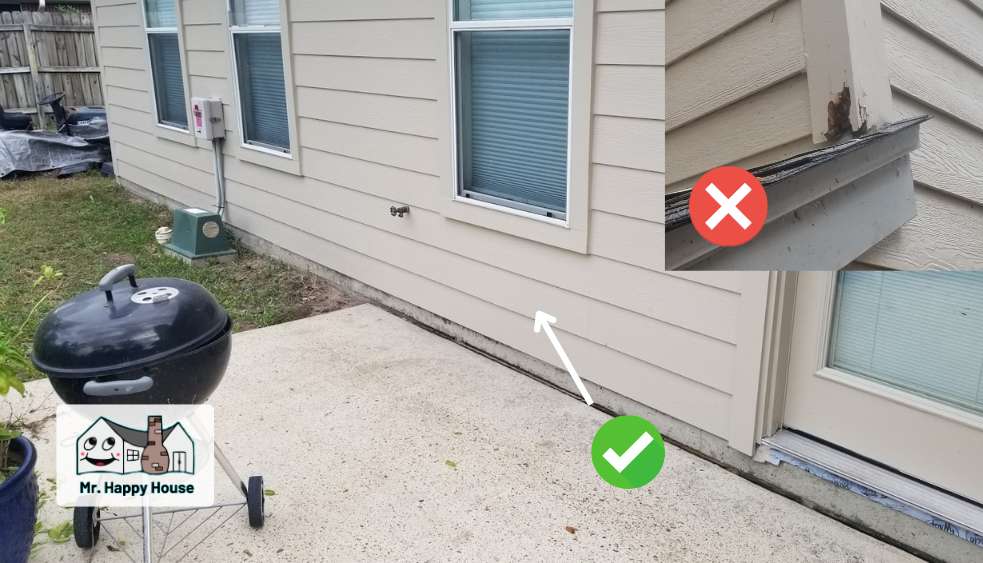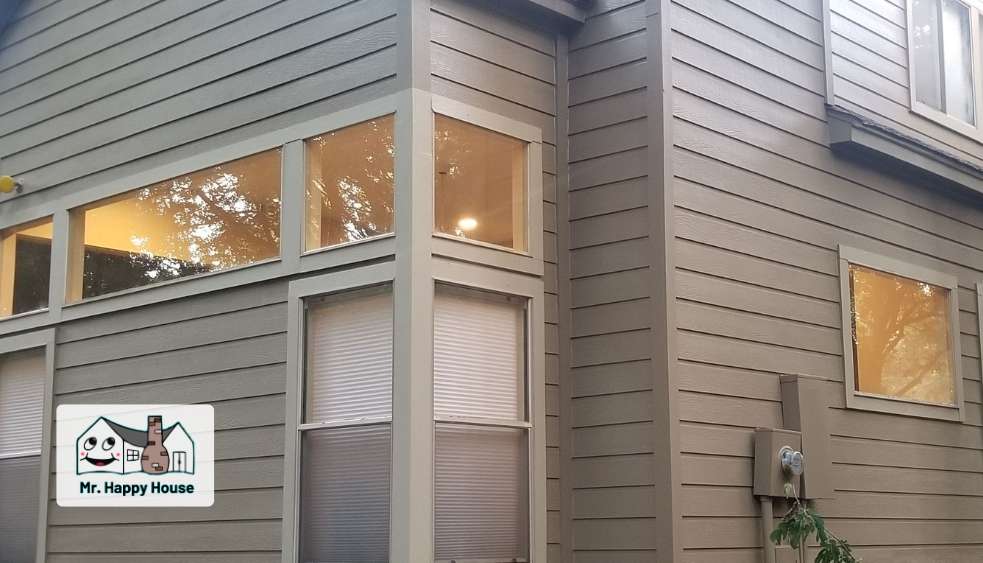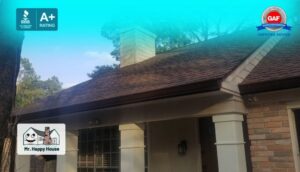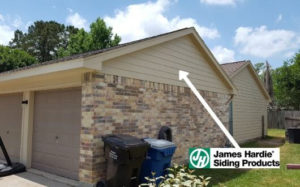
Best GAF Certified Roofers in The Woodlands, TX – Quality Roof Replacement, Gutters & Siding
Best GAF Certified Roofers in The Woodlands, TX – Quality Roof Replacement, Gutters & Siding Best GAF Certified Roofers in The Woodlands, TX – Quality

If your siding has to be repaired and the cost is excessive, you might be wondering why siding repairs is more expensive than replacement. Siding serves an invaluable functional purpose, from aesthetic appeal to protecting against external factors and elements for any house’s foundation from becoming weaker over time, requiring extensive repairs or upgrades to its foundation.
But now, in the face of major upkeep needs for existing siding, you are left in an unenviable predicament: replacement or repair? Typically, repairs can become increasingly more costly over time and with every additional hour and dollar invested into them.
Read on so that by the end, you’ll understand why opting for a siding replacement may make more sense in the long run. Moreover, you will learn which siding is your best option for longer-term protection.
Although siding is designed to last a long time, its lifespan varies depending on the material. Vinyl siding typically lasts between 10 and 30 years (in cold climates), while fiber cement siding can endure for 50 years or more.
However, this longevity is achievable only with regular maintenance. It’s also important to note that these lifespans are estimates. The actual lifespan of your siding could be shorter or longer, especially if you live in a harsh climate, which may require more frequent repairs or replacement.
Despite manufacturers’ claims that routine care is enough to extend siding’s life for decades, like other parts of your home—such as the roof—siding eventually ages or becomes damaged and needs to be replaced. Replacement is not always the first option you will think of because, typically, replacing something costs more than repairing. However, that is not the case with siding, which is why siding repairs is more expensive than replacement.
To understand why siding repairs are more expensive than replacement, let’s look at the factors that play their part and will help you make decisions.
Siding repair is more involved and precise than just taking off the old siding and replacing the panels. Siding installation labor costs range from $1 to $5 per square foot on average, which means that labor costs are a major factor in why siding repairs can be more expensive than complete replacements.
Finding the trouble spots and carefully removing individual panels are necessary steps in repairing a few damaged siding portions.
Further, in order to match the current siding’s color and texture, the repairer will occasionally work twice as hard, not to mention the extra tools required for every kind of repair that will be necessary.
The kind of material selected can have a big impact on how much siding repairs cost. Like different sidings, they have varying lifespans due to material composition. Similarly, some materials cost more to repair than to replace because of things like compatibility, availability, and aging.
For example, vinyl siding typically requires less repair cost than fiber cement or wood siding. However, replacing all of the wood siding with a more durable material may be less expensive than doing so because wood siding is more labor-intensive to repair due to its vulnerability to decay and insect damage.
Moreover, if your siding is really old, certain siding materials may have been discontinued or are hard to get, which would increase the expense of repairs. Finding appropriate stuff could, therefore, necessitate extra thought from you.
The extent of damage is a major factor contributing to repairs, which are sometimes more expensive than replacements. When siding is only partially fixed, an underlying problem may remain hidden, necessitating additional repairs down the road.
For example, if your siding has mold growth and water damage, this frequently lets moisture penetrate the home’s structure and causes rot, mold, or water damage. Although surface repairs can be made quickly, they cannot take care of subsurface water damage.
Additionally, it might weaken insulation, for which repairs might not be enough to prevent long-term issues with energy efficiency. All of them are expensive, time-consuming procedures that increase costs.

Siding repairs can be expensive initially, but they may end up costing more over time. Furthermore, even if a complete siding replacement has a higher initial cost, there are a number of long-term advantages, as previously mentioned.
Additionally, a full replacement enables homeowners to move to more long-lasting materials, including fiber cement, which minimizes the need for maintenance down the road and offers superior long-term durability.
This is where it’s best to choose the siding produced by James Hardie, the top brand in America and manufacturer of fiber cement siding with the highest performance. Hardie siding is composed of a substance that resembles cement and is resistant to dampness, decay, and vermin. The variety of colors they offer will improve your home’s aesthetics, enhance curb appeal, and give a contemporary, uniform look, keeping its practical benefits.
With the right care, it can last at least 50 years, which is why they are so well-known for their longevity. In contrast to vinyl siding, which usually only lasts 20 to 40 years, homeowners who want to maintain their properties over time make it a desirable alternative.
Homeowners must think about how their decisions may impact the type of protection for their properties. Although siding repairs might initially appear to be less expensive, they may wind up costing more in the long run because of concealed damage, labor-intensive maintenance, and material limits.
However, that can ultimately result in longer-term costs. You can fix that siding part if the repair is tiny enough, but most of the time, you miss the reason why it occurred, and it causes more issues. When you are looking for a new installation, James Hardie’s siding is unquestionably the best option out there.
In general, homeowners who have siding damage should carefully assess their alternatives, taking into account both the short- and long-term effects of why siding repairs is more expensive than replacement. In the end, a complete siding replacement frequently turns out to be the most economical and long-lasting option.
We hoped you loved this article about why siding repairs is more expensive than replacement, please share and tune in for more roofing, siding, and house painting content!
Our Services:













Best GAF Certified Roofers in The Woodlands, TX – Quality Roof Replacement, Gutters & Siding
Best GAF Certified Roofers in The Woodlands, TX – Quality Roof Replacement, Gutters & Siding Best GAF Certified Roofers in The Woodlands, TX – Quality

Are Gutters Part of the Roofing System?
Are Gutters Part of the Roofing System? Are Gutters Part of the Roofing System? When it comes to home maintenance, gutters often seem like a

Why James Hardie is The Best Option for Home Siding
Why James Hardie is The Best Option for Home Siding Why James Hardie is The Best Option for Home Siding James Hardie stands out whether











